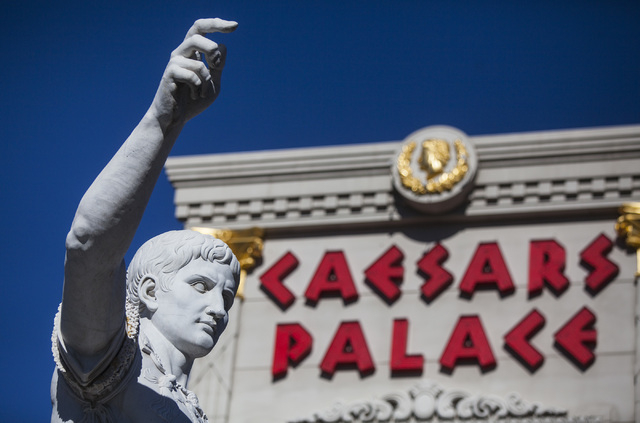Caesars makes pitch for Chicago as bankruptcy trial venue

WILMINGTON, Del. — The casino operating unit of Caesars Entertainment Corp. should be allowed to choose where to file for bankruptcy even if it misbehaved, the company’s lawyers argued on Monday as its Chapter 11 case unfolded in two courts.
Creditors of Caesars’ operating unit want a U.S. Bankruptcy judge to move its Chapter 11 case from Chicago to Delaware, where the creditors have tried to push the company into bankruptcy. The creditors hope a Delaware court will be less favorable to the company’s strategy for getting its debt-cutting plan approved.
Monday’s hearing was adjourned Monday afternoon as a major winter storm loomed. Closing arguments will be held on Tuesday at 10 a.m. by telephone.
The hearing will decide where the bankruptcy will proceed, and by extension which legal standard to apply to Caesars’ $10 billion debt-cutting plan — the one in Chicago or the one in Delaware.
Creditors that oppose the debt-cutting plan argued that the company forfeited the right to choose the court through its behavior. They have alleged the parent “looted” the operating company of $3.6 billion in assets, leaving it unable to pay its debts.
The company, Caesars Entertainment Operating Co. Inc., argued to Delaware Bankruptcy Judge Kevin Gross that its case should be in Chicago, a central location to seven of its 38 casinos.
“We’re not a popular debtor,” said the company’s attorney Paul Basta. “Unless you have a better moral compass than the court in Chicago, then what do the bad acts have to do with venue choice?”
Basta said an independent examiner is more likely to be appointed under the legal standard in Chicago and said the transfer of assets out of the operating unit will be scrutinized regardless of which court handles the case.
The legal standard in Chicago favors giving a legal shield or releases to Caesars’ parent company for the asset transfers that have angered creditors. Prime properties such as The Linq complex in Las Vegas were moved out of the operating unit in recent years to the parent, beyond the reach of the operating unit’s creditors.
The company’s legal team told Gross that it will eventually reach a deal with creditors to compensate them for the asset transfers and in return creditors will agree to releases for the parent company and affiliates. When that happens, creditors will be happy to have the Chicago court’s favorable standard applied to those releases.
Gross questioned that logic. “Aren’t you manufacturing a restructuring agreement that has holes all through it as a basis for venue?”
Caesars, which Apollo and TPG created after leading the $30 billion leveraged buyout of Harrah’s Entertainment in 2008, has said the transfers were done at fair value and relieved the operating unit of capital-intensive projects.
At the moment, Caesars only has the support of one of four classes of creditors, a group known as the first-lien noteholders, who are owed $6.3 billion.
The second-lien noteholders, led by Appaloosa, oppose the plan and hope to u
nwind the asset transfers. Creditors used that strategy with Dynegy Holdings, a power company that filed for bankruptcy in 2011.
A report by Fitch Ratings said Caesars’ asset transfers were less “egregious” than Dynegy’s, but still warned the bankruptcy was likely to be protracted and contentious. The rating agency also said the costs of Chapter 11 would top $800 million — an estimate made before there were two bankruptcies.
RELATED:
Caesars skips $225 million interest payment
Caesars Entertainment Corp., affiliate to merge; shares rise
Caesars moves to restructure $24 billion debt
Caesars says 39 percent of creditors agree to restructuring plan


















